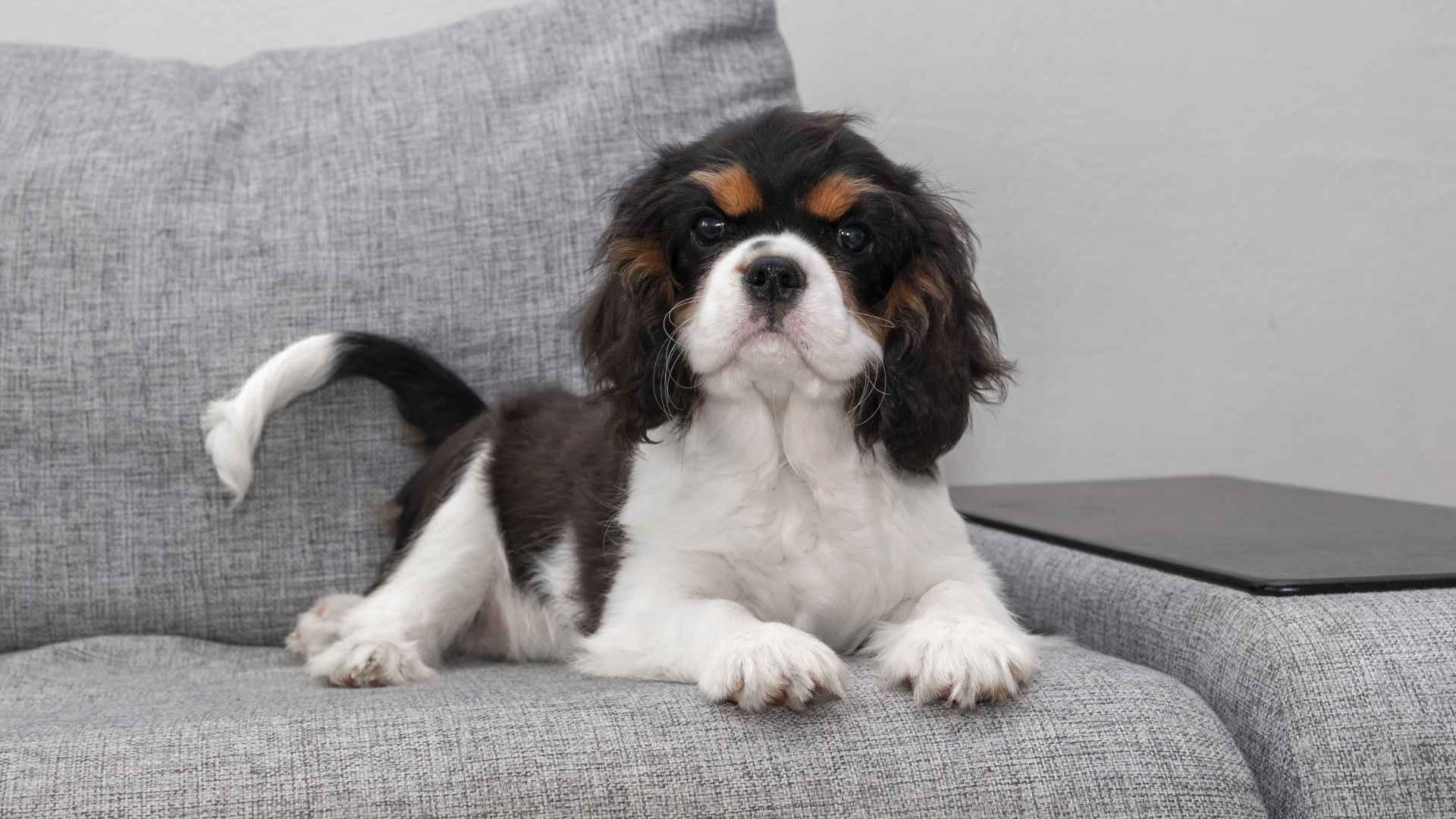Did you know? Pet therapy comes in two flavors. Animal-Assisted Therapy (AAT) is structured and guided by professionals to meet health goals, while Animal-Assisted Activities (AAA) are more relaxed, offering comfort, joy, and companionship in everyday settings.
Moreover, therapy animals are now part of stress-relief programs at over 1,000 U.S. schools, hospitals, and workplaces in 2025. Research shows their presence lowers cortisol levels and boosts mood in both children and adults.
While their superpower is comfort, not every therapy dog thrives when left alone. Some breeds struggle with separation anxiety, leading to stress for both pup and owner.
For busy families and professionals, choosing a breed that balances emotional support with independence can make all the difference. A therapy dog should bring peace, not worry, when you step out the door.
That’s why small therapy breeds with calm temperaments are so valuable. They’re compact, affectionate, and resilient enough to handle short stretches of solitude.
In this guide, we’ll highlight the top breeds that fit seamlessly into real life, offering comfort and companionship without constant supervision.
Small Therapy Dog Breeds That Can Be Left Alone
1. Pug

The Pug is one of the most charming small therapy dog breeds, known for its playful spirit and unwavering affection. Their clownish personality naturally lightens the mood, making them ideal for easing stress.
As emotional support companions, Pugs excel at sensing human emotions. Their gentle snorts and snuggles have a grounding effect, especially for those battling anxiety or loneliness.
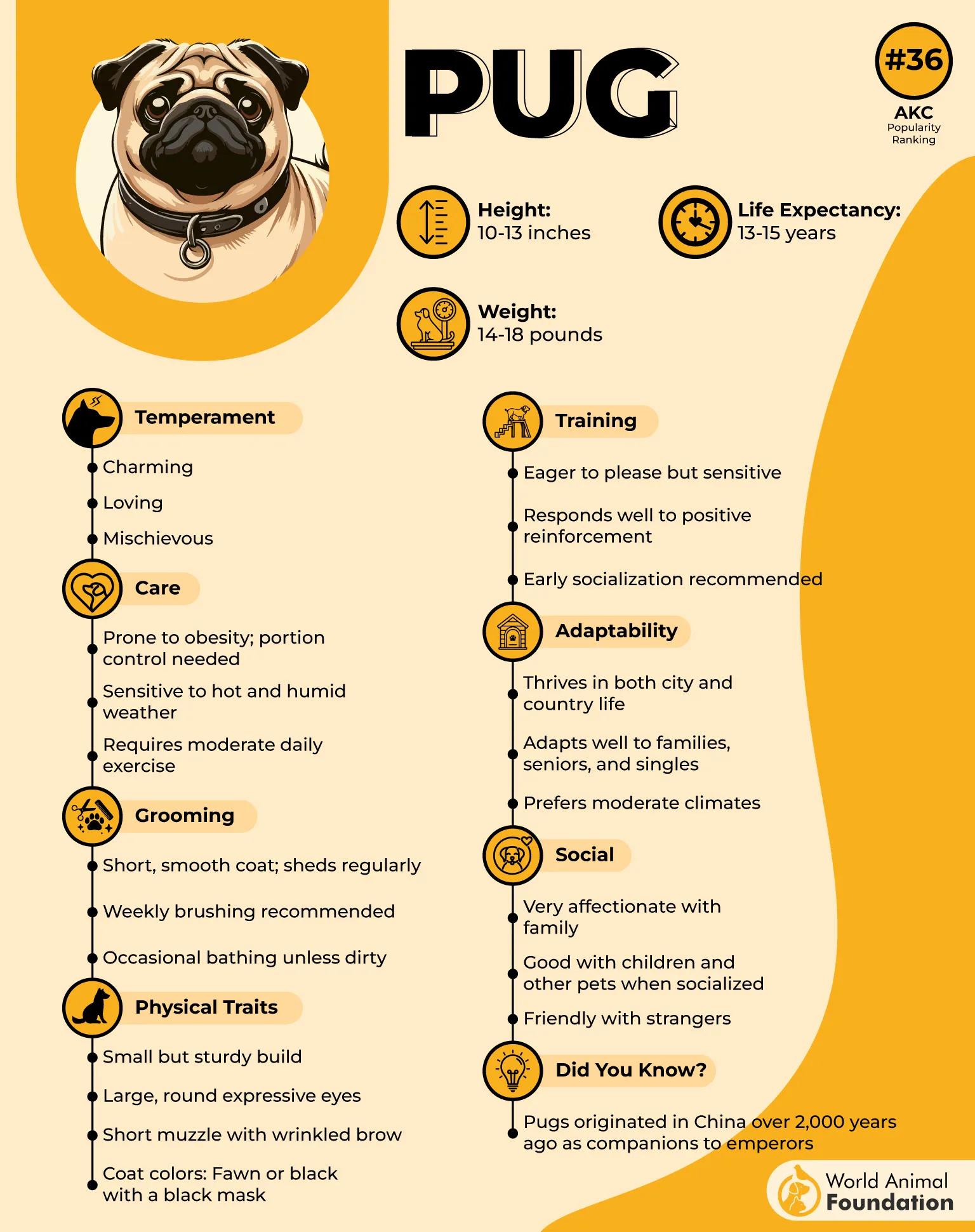
Despite their compact size, Pugs are highly adaptable and thrive in both small apartments and family homes. This flexibility makes them a great fit for busy owners who need a reliable therapy presence.
PetMD adds that their short coat and minimal grooming needs mean less maintenance and more bonding time. Owners benefit from a low-effort, high-reward therapy companion.
Because of their calm yet affectionate nature, Pugs are well-suited for children, seniors, and individuals seeking steady comfort. Their steady temperament helps create a relaxed home environment.
Above all, a Pug’s loyalty and constant companionship offer a therapeutic blend of laughter, love, and serenity. They truly embody “happy home” therapy dogs.
Owners Insight
Pug — Best for children with autism or social anxiety.
2. Maltese

The Maltese is a graceful yet resilient therapy dog breed, beloved for its affectionate temperament. Their silky white coat may catch the eye, but it’s their emotional intelligence that captures hearts.
As natural stress relievers, Maltese thrive on human connection. They provide calm cuddles that ease tension and bring a soothing sense of peace.
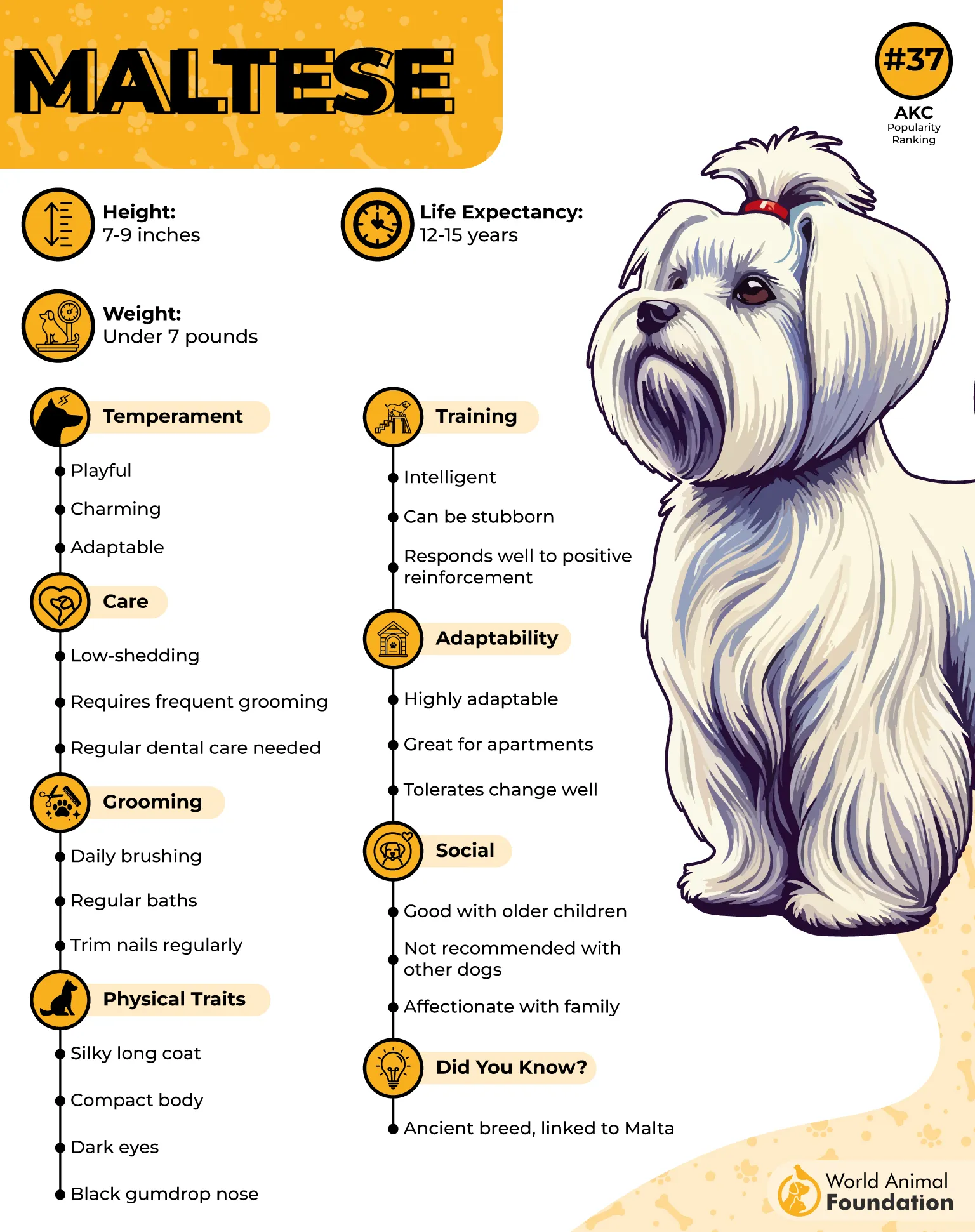
These small dogs adapt beautifully to therapy settings, whether in hospitals, care homes, or private residences. Their gentle demeanor makes them approachable for children and seniors alike.
The Maltese’s compact size also makes them travel-friendly, perfect for owners with active lifestyles who still need a therapy dog by their side.
WebMD claims that low-shedding and hypoallergenic qualities add another layer of comfort, especially for those with allergies. This ensures their therapeutic benefits reach a wider group of people.
Ultimately, Maltese dogs shine as companions for individuals seeking a constant, loving presence in a therapy partner. They embody serenity in every wag.
Owners Insight
Maltese — Ideal for seniors with depression or limited mobility.
3. Japanese Chin
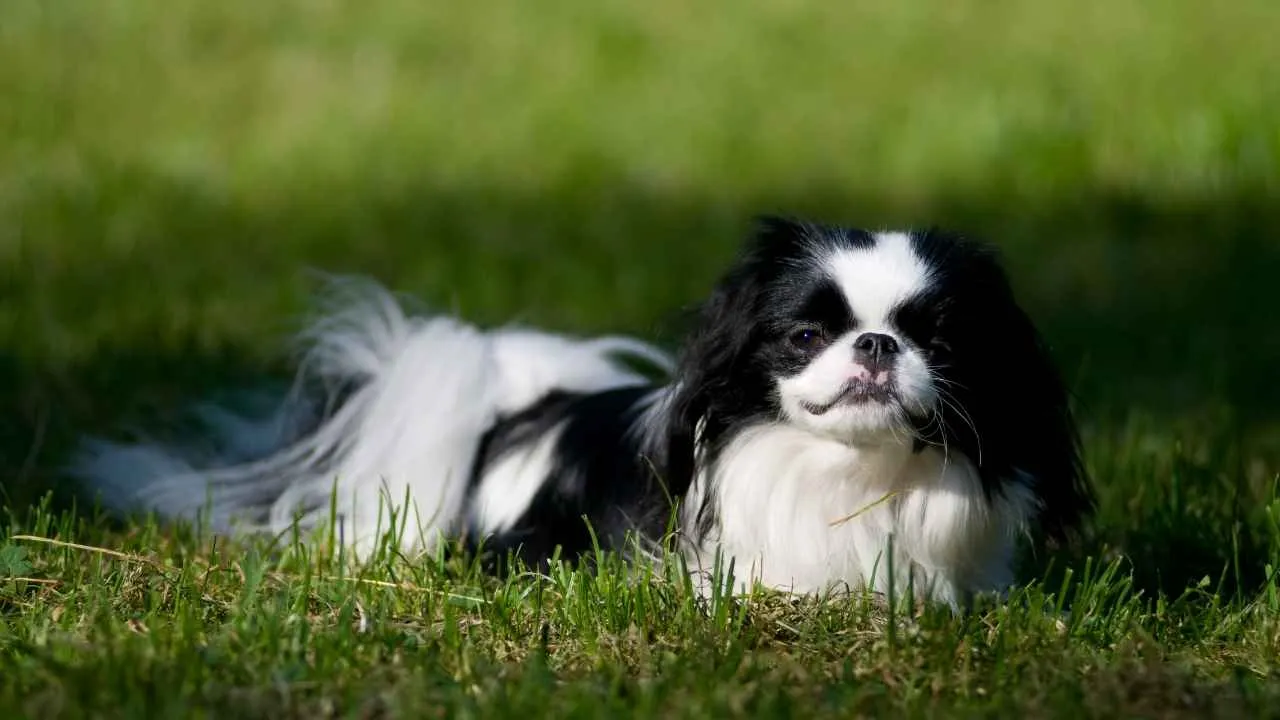
The Japanese Chin is a lesser-known gem among small therapy dog breeds that can be left alone. Known for their cat-like elegance, they bring quiet comfort and unique companionship.
These dogs are highly intuitive and form deep emotional bonds with their owners. Their serene nature provides a calming influence in stressful moments.
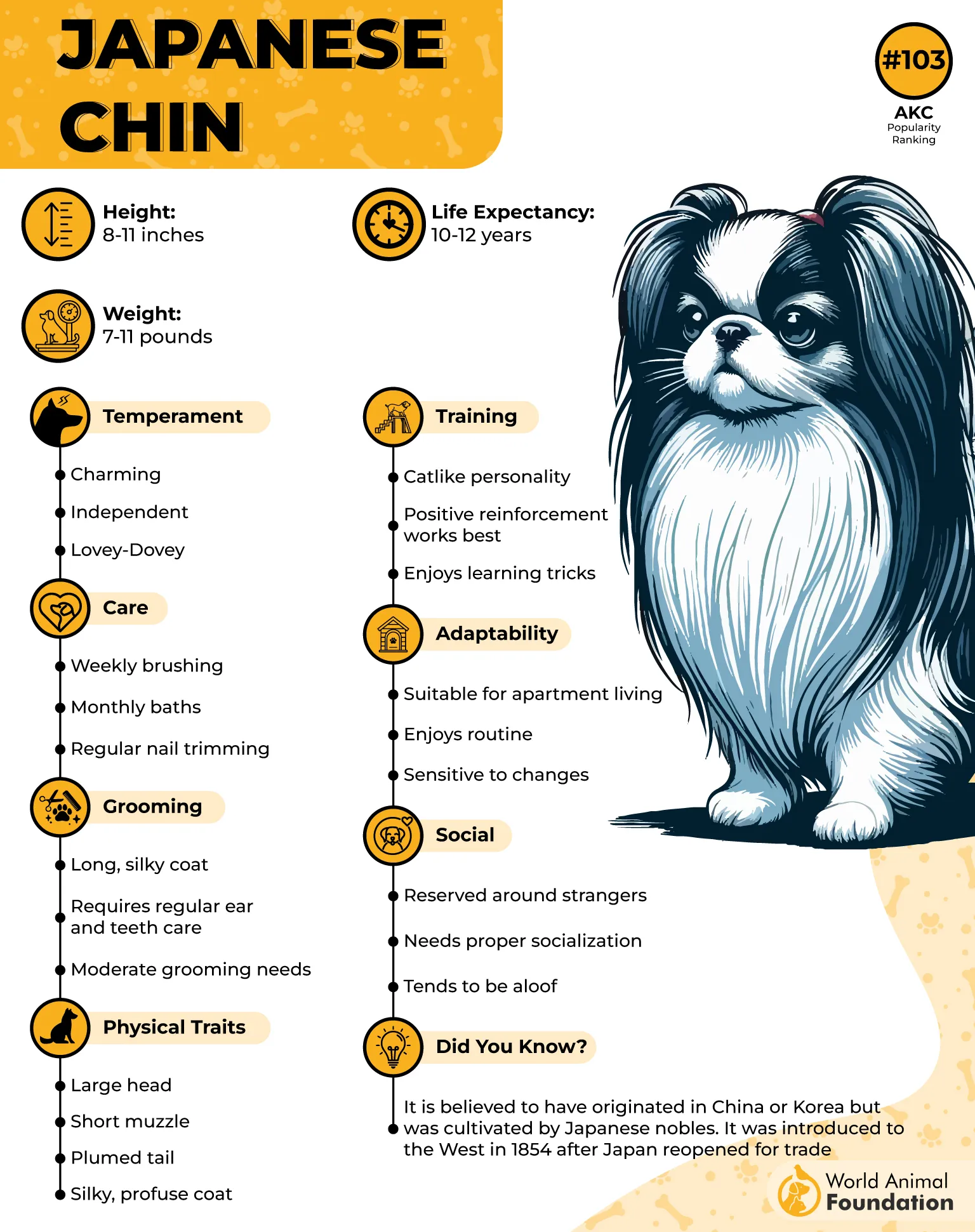
Unlike many toy breeds, Japanese Chins are fairly independent. This trait makes them excellent therapy companions for busy professionals who can’t always be home.
AKC notes that their gentle playfulness balances well with their love of lounging, creating a therapeutic mix of joy and relaxation. They know when to be lively and when to simply comfort.
Because they are small and adaptable, Japanese Chins thrive in both city apartments and suburban homes. Their ability to adjust enhances their role as therapy dogs.
In essence, Japanese Chins combine affection, independence, and tranquility. They’re an ideal therapy choice for owners seeking balance and harmony at home.
Owners Insight
Japanese Chin — Great for introverts managing chronic stress or ADHD.
4. Shih Tzu
The Shih Tzu has a long history as a cherished companion dog, bred to bring comfort and warmth to their families. Their affectionate temperament makes them a natural choice as therapy dogs.
With their calm and steady personality, Shih Tzus are excellent at easing stress in tense environments. A cuddle session with them can feel like instant therapy.
They are small but sturdy, which allows them to work well with children and seniors alike. Their non-intimidating presence is especially beneficial in therapy visits.
Shih Tzus are also remarkably adaptable, thriving in both apartments and larger homes. This makes them accessible to owners from all walks of life.
Their luxurious coat may require grooming, but it also adds to their appeal during therapy interactions, as people find them comforting to touch.
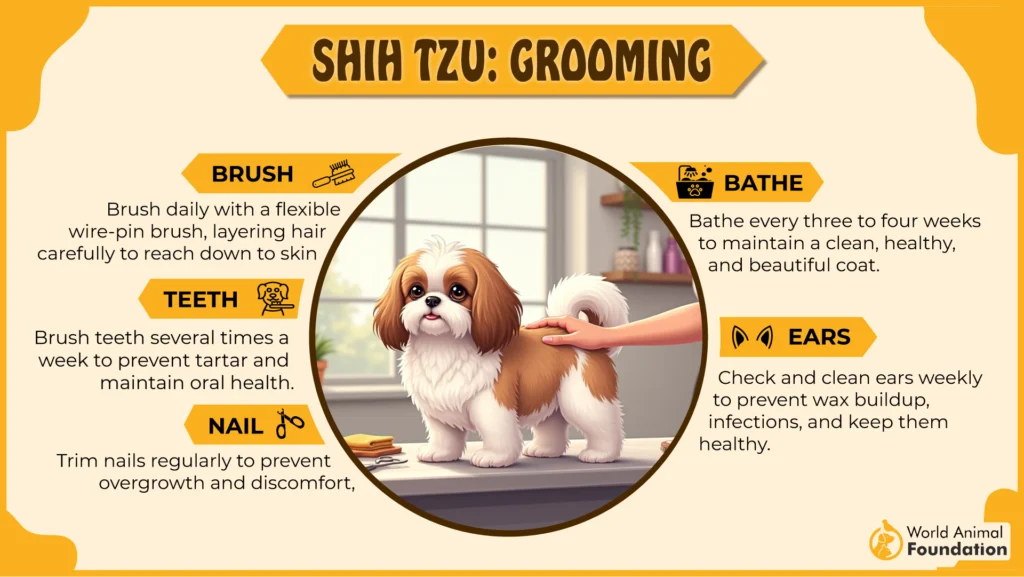
Overall, Shih Tzus embody gentle companionship, bringing joy and tranquility to those who need emotional support the most.
Owners Insight
Shih Tzu — Comforting for PTSD recovery and generalized anxiety disorder.
5. Papillon
The Papillon, named after its butterfly-shaped ears, is a bright and cheerful small therapy dog breed. Known for intelligence and agility, they excel at engaging with people emotionally.
These dogs thrive on human interaction, offering affection and playful charm that lifts spirits instantly. Their enthusiasm brings light into stressful or lonely moments.
Despite their small size, Papillons are confident and eager to please. This makes them excellent candidates for therapy visits in hospitals, schools, or senior centers.
Papillons are also quick learners, capable of mastering tricks that entertain and connect with people. This talent makes therapy sessions more interactive and joyful.
They require moderate exercise, but their adaptability means they’re happy indoors as long as they have companionship and mental stimulation.
As therapy dogs, Papillons are perfect for owners seeking a small, lively companion who provides both comfort and positive energy.
Owners Insight
Papillon — Perfect for individuals with low energy or mild depression.
6. Cavalier King Charles Spaniel
The Cavalier King Charles Spaniel is beloved for its gentle, affectionate nature. This breed has a natural gift for bonding with humans, making it a top therapy dog choice.
With their soulful eyes and calm demeanor, Cavaliers excel at comforting individuals facing stress or sadness. Their quiet companionship feels deeply reassuring.
They adapt seamlessly to different households, whether with families, singles, or seniors. This flexibility makes them highly versatile therapy partners.
Cavaliers thrive on human touch, often curling up on laps to provide warmth and emotional connection. Their presence alone reduces anxiety and loneliness.
While they love companionship, Cavaliers can manage short periods of solitude, making them suitable for busy owners. Their balanced temperament prevents stress from overwhelming them.
As therapy dogs, Cavaliers bring unmatched love and serenity, creating a nurturing environment for anyone in need of emotional healing.
Owners Insight
Cavalier King Charles Spaniel — Supportive for loneliness and grief coping.
7. Poodle
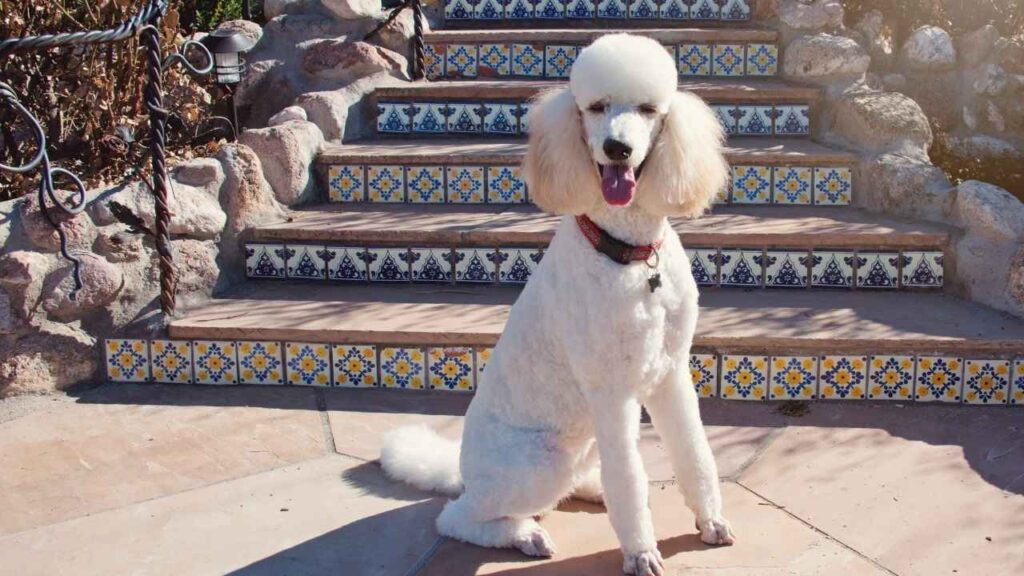
The Poodle—whether Toy or Miniature—is one of the smartest small therapy dog breeds. Their high intelligence and eagerness to please make them highly responsive therapy companions.
These dogs quickly pick up on emotional cues, offering comfort when it’s needed most. Their empathetic nature makes them outstanding stress relievers.
Poodles are hypoallergenic, which ensures more people can benefit from their therapy work without worrying about allergies. This inclusivity adds to their value.
They thrive on mental stimulation, enjoying games and activities that keep therapy sessions engaging. This keeps both the dog and the person positively occupied.
Despite their elegance, Poodles are playful and affectionate, making them approachable for children, seniors, and everyone in between.
As therapy dogs, Poodles shine with their mix of intelligence, adaptability, and compassion—perfect for bringing balance and comfort into any home.
Owners Insight
Poodle — Excellent for people with anxiety and strong emotional needs.
FAQs
Can leaving a therapy dog alone affect their behavior?
Yes, leaving emotional support dogs alone for long periods can cause them to develop separation anxiety or show excessive barking. However, certain breeds with an independent nature may be perfectly content enjoying their own company during short stretches of quiet time.
What makes some therapy dogs more independent than others?
A dog’s individual temperament plays a crucial role in how self-sufficient they are. While small breeds often need more attention, some adult dogs and even larger breeds can be more self-sufficient, requiring less exercise or regular grooming.
Which mini therapy dogs are perfect for busy owners?
Small breeds with an independent nature are a great choice for busy dog owners. A Lhasa Apso, Toy Poodle, or other excellent companions with a friendly disposition adapt well, need less exercise, and stay comfortable with short routines.
Conclusion
Finding the right dog for therapy is all about balance—whether it’s loving small dog breeds like Pugs or independent dogs like a Shiba Inu, each has its own set of gifts.
Remember, even popular dog breeds such as the French Bulldog, Boston Terrier, or Golden Retriever can shine as great therapy dogs with proper training from skilled dog trainers.
At the end of the day, the best dogs are those that fit your lifestyle, form strong bonds, and bring comfort to you and your family members—the perfect furry friend is waiting at your front door.


